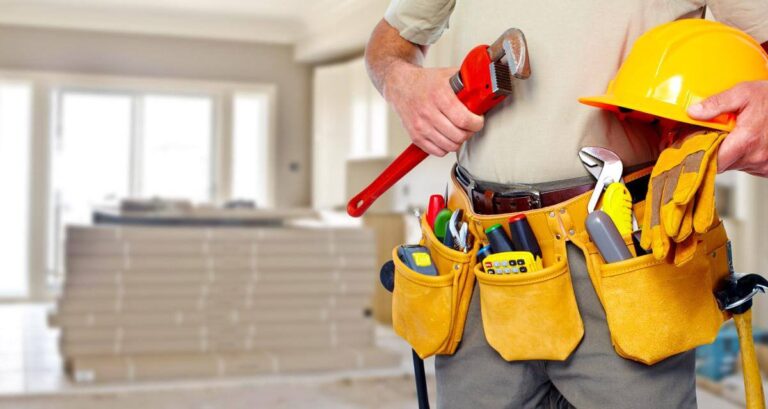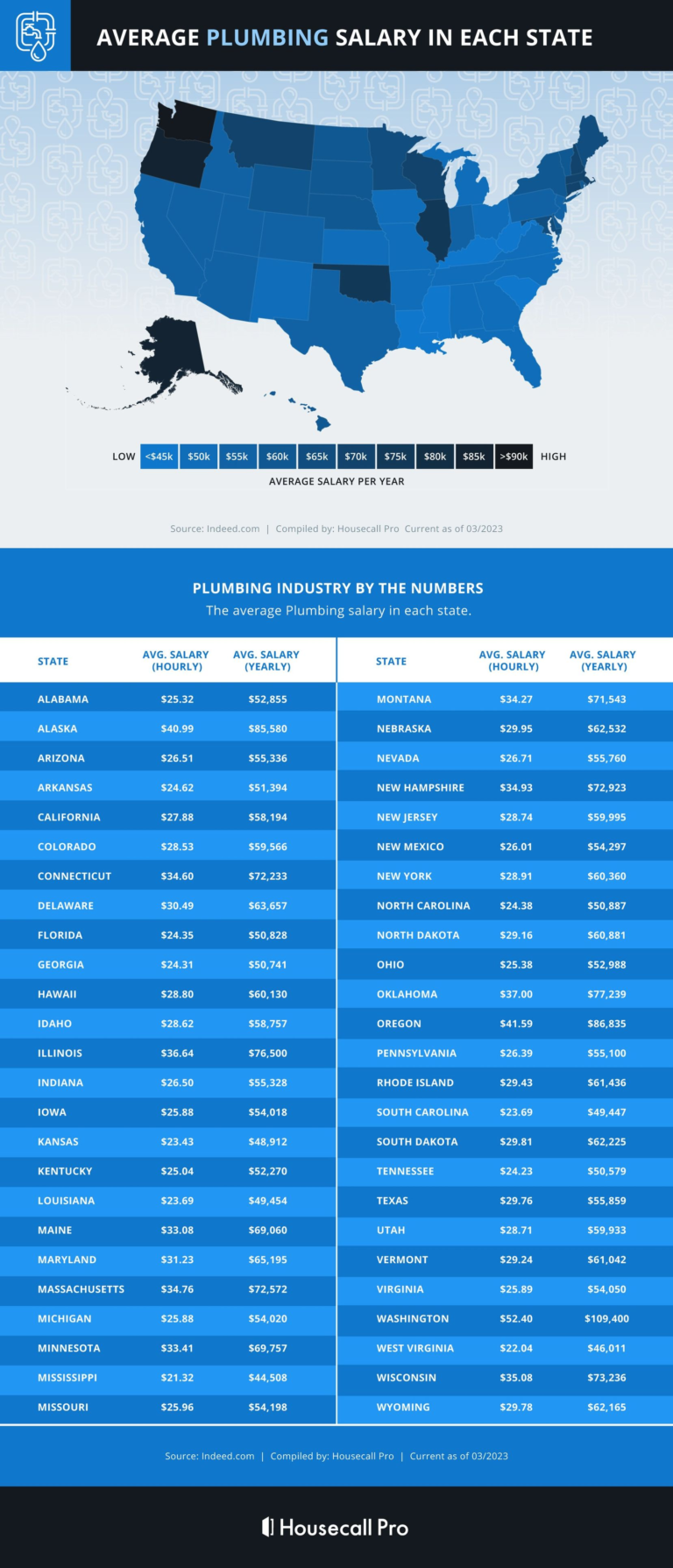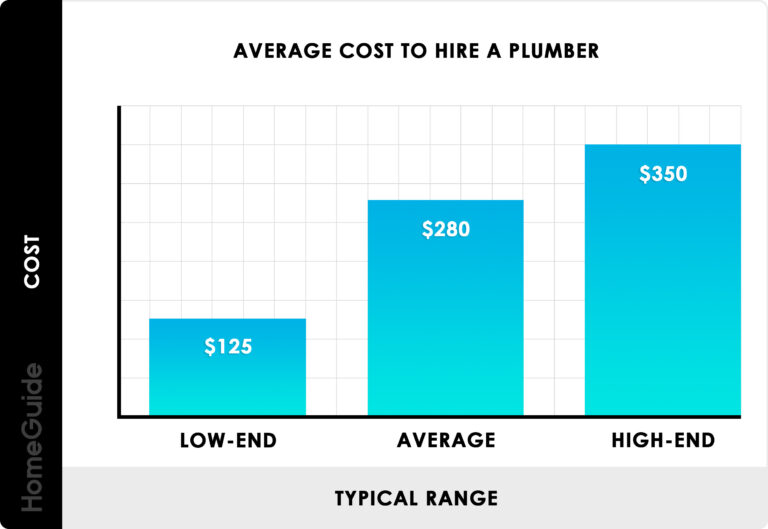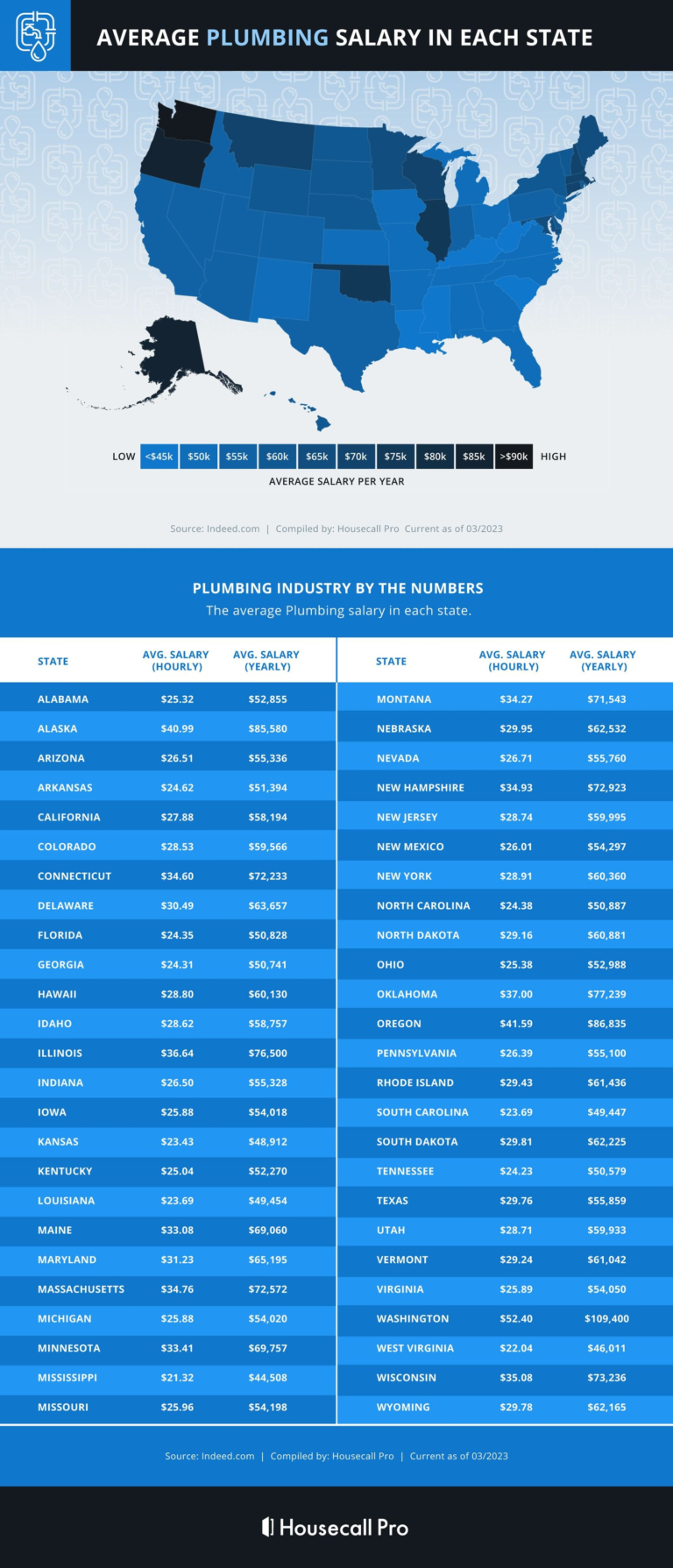What Is The Highest Level Of Plumber?
A plumber is a professional who specializes in the installation, repair and maintenance of piping systems, plumbing fixtures, and other related systems for residential and commercial buildings. The highest level of plumber is a Master Plumber, which requires years of experience, specialized knowledge, and certification. Master Plumbers have the ability to design, install, and repair complex plumbing systems, as well as the ability to troubleshoot and diagnose difficult problems. Master Plumbers are also responsible for providing guidance to other plumbing personnel, ensuring that all work meets local and national codes.
Overview of Plumbing Careers
The plumbing industry is a complex and varied field, offering a wide array of career paths. From basic maintenance and repairs to complex installation projects, plumbers are responsible for a variety of tasks. But what is the highest level of plumber? This article will provide an overview of plumbing careers, including the highest level of plumber and the benefits of the job.
A plumbing career begins with a basic apprenticeship, which is typically completed in two to four years. During the apprenticeship, plumbers-in-training learn the fundamentals of the trade, such as how to read blueprints, install and repair piping systems, and understand local building codes. When the apprenticeship is complete, the plumber is qualified to work on residential and commercial projects.
At the highest level, plumbers become master plumbers. To become a master plumber, a plumber must pass a series of tests and obtain certification from their state or local municipality. Master plumbers have a wide range of responsibilities, including installing and repairing pipes, drains, and fixtures, inspecting and testing plumbing systems, and advising customers on the best plumbing solutions.
The benefits of becoming a master plumber are numerous. Master plumbers can earn higher wages than other plumbers and have access to the most advanced tools and techniques. They can also specialize in certain areas, such as plumbing for new home construction or commercial projects. Master plumbers also have the chance to start their own business and become entrepreneurs.
In conclusion, the highest level of plumber is a master plumber. Becoming a master plumber is a great way to increase earning potential and open up new career opportunities. With the right training and experience, anyone can become a master plumber and find success in the plumbing industry.
Qualifications for Becoming a Plumber
Becoming a plumber takes a lot of knowledge and experience. To become a certified plumber, one needs to have a combination of education, experience, and skills that are necessary for the job. To reach the highest level of plumber, a combination of technical and practical knowledge is required.
To become a Certified Master Plumber, one must complete an apprenticeship program and pass a licensing exam. Apprenticeships are available through trade schools, community colleges, and local unions. Apprenticeship programs will teach you the basics of plumbing such as installation, maintenance, and repair. Once completed, apprentices must pass a licensing exam in order to become certified.
In addition to apprenticeship programs, plumbers need to have a certain level of experience, as well as technical knowledge. The amount of experience required varies by state; however, most states require that plumbers have at least two years of experience as a journeyman. Technical knowledge is also required; plumbers must be knowledgeable in mathematics, physics, chemistry, and other sciences in order to do the job correctly.
Once a plumber has obtained the necessary qualifications, they must pass a certification exam. This exam tests the plumber’s knowledge and skills in areas such as safety, installation, and repair. Upon successful completion of the certification exam, the plumber will become a Certified Master Plumber.
Becoming a certified plumber is no easy feat, and requires dedication and hard work. But with the right qualifications, experience, and knowledge, a plumber can reach the highest level of their profession and become a Certified Master Plumber.
Different Levels of Plumber Qualifications
Plumbers provide a vital service to residential and commercial properties, so it’s important to understand the different qualifications they may have. Generally, plumbers can be classified into three levels of expertise.
The most basic level is a journeyman plumber. Journeyman plumbers are licensed to work independently on residential and commercial systems. They have extensive training and knowledge in plumbing, as well as a good understanding of local codes and regulations.
The next level is a master plumber. Master plumbers have completed an apprenticeship program, and have more experience and training than a journeyman plumber. They can work independently on residential and commercial plumbing systems, and are also qualified to supervise other plumbers.
The highest level of plumber is a plumbing contractor. Plumbing contractors have extensive experience and training, and are qualified to take on larger projects. They usually have their own business, and may employ journeyman and master plumbers.
Overall, the qualifications of a plumber depend on the level of expertise they bring to the job. Journeyman plumbers are the least experienced, while plumbing contractors have the most. Knowing the qualifications of the plumber you’re hiring will help ensure that your project is completed correctly and safely.
The Highest Level of Plumber
is a Master Plumber. A Master Plumber is a professional who has achieved a certain level of competency as a plumber through education, certification, and/or experience. This individual has the knowledge and skill needed to install, maintain, and repair all types of plumbing systems. A Master Plumber typically has a minimum of five years’ experience in the industry and has passed a special examination which is administered by a state or local jurisdiction.
To become a Master Plumber, the individual must possess specialized knowledge of plumbing codes, local regulations, and safety standards. A Master Plumber will be knowledgeable in the installation and repair of water supply systems, drainage and sewage systems, and gas systems. They must also be able to diagnose and repair complex plumbing problems. Additionally, a Master Plumber is expected to be familiar with the best ways to protect plumbing systems from damage caused by extreme weather, corrosion, and other environmental factors.
In addition to technical knowledge, a Master Plumber must also possess excellent customer service skills and be able to offer reliable solutions to their customers’ plumbing issues. They must also demonstrate excellent communication and problem-solving skills as well as the ability to work with customers to ensure they receive the best possible service. Because of their expertise, Master Plumbers often command higher pay rates than their less experienced counterparts.
Overall, the highest level of plumber is the Master Plumber, an individual who has achieved a certain level of competency in the field. With their specialized knowledge and expertise in plumbing systems, they are able to diagnose and repair complex plumbing issues and ensure that their customers receive the best possible service.
Benefits of Becoming a Plumber at the Highest Level
Achieving the highest level of plumber means having a greater level of expertise and knowledge in the field, as well as more job opportunities. Becoming a plumber at the highest level brings a number of benefits that can help you progress your career and increase your earning potential.
One of the most significant advantages of becoming a plumber at the highest level is the opportunity to earn more money. Plumbers at the highest level are able to charge higher rates for their services, meaning they can earn more money for the same amount of work. This can make a big difference in their long-term financial security.
Additionally, plumbers at the highest level tend to have more job security. They can usually find more work in their field and have better job stability due to their expertise and experience. This can be a great benefit for those who want to stay in the same profession for the long-term.
Finally, plumbers at the highest level often receive higher levels of respect from their colleagues and customers. This can be beneficial in a number of ways, from gaining more trust and respect from customers to having more job opportunities.
Overall, becoming a plumber at the highest level brings a number of benefits that can provide long-term job security and financial stability. With the right knowledge and experience, it is possible to achieve the highest level of plumber and enjoy the benefits that come with it.
Challenges of Reaching the Highest Level of Plumber
When it comes to plumbing, there is no one-size-fits-all approach. Different levels of plumbing require different levels of knowledge and experience, and the highest level of plumber is no exception. To become a master plumber, you must first become a journeyman plumber and then work your way up. This article will discuss the challenges of reaching the highest level of plumber and the skills and expertise that you will need to make it.
The journey to becoming a master plumber can be a long and difficult one. In order to become a master plumber, you must first become a journeyman plumber. This requires passing a test, completing an apprenticeship, and gaining experience in the field. Once you have achieved this level, you must then take additional classes and complete more advanced training in order to become a master plumber.
In addition to the time and effort required to become a master plumber, there are also certain skills and expertise that you must possess. Master plumbers must have a thorough understanding of the various plumbing systems and be able to diagnose and fix any issues that arise. They must also be able to install and maintain water heaters, underground piping, and other complex systems. They must also be knowledgeable in local codes and regulations, as well as safety protocols.
Reaching the highest level of plumber is a challenging journey, but one that is well worth the effort. The skills and knowledge that you will gain along the way will make you a more valuable member of any plumbing team and help you to provide your customers with the best service possible.
FAQs About the What Is The Highest Level Of Plumber?
Q1: What is the highest level of plumber certification?
A1: The highest level of plumber certification is a Master Plumber, which requires a certain amount of years of experience and the successful passing of an examination.
Q2: What are the benefits of becoming a Master Plumber?
A2: Benefits of becoming a Master Plumber include increased earning potential, credibility, and the ability to work on highly technical projects.
Q3: How long does it take to become a Master Plumber?
A3: Becoming a Master Plumber typically takes at least four years of experience in the plumbing field and the successful passing of an examination.
Conclusion
The highest level of plumber is a master plumber. A master plumber is a licensed professional who has passed a rigorous examination and has extensive knowledge of plumbing systems and the codes and regulations that govern them. Master plumbers are responsible for the design, installation, maintenance, and repair of plumbing systems. They are also responsible for the safety of the systems they install and maintain. Master plumbers are highly sought after due to their knowledge, expertise, and ability to work with all types of plumbing systems.







